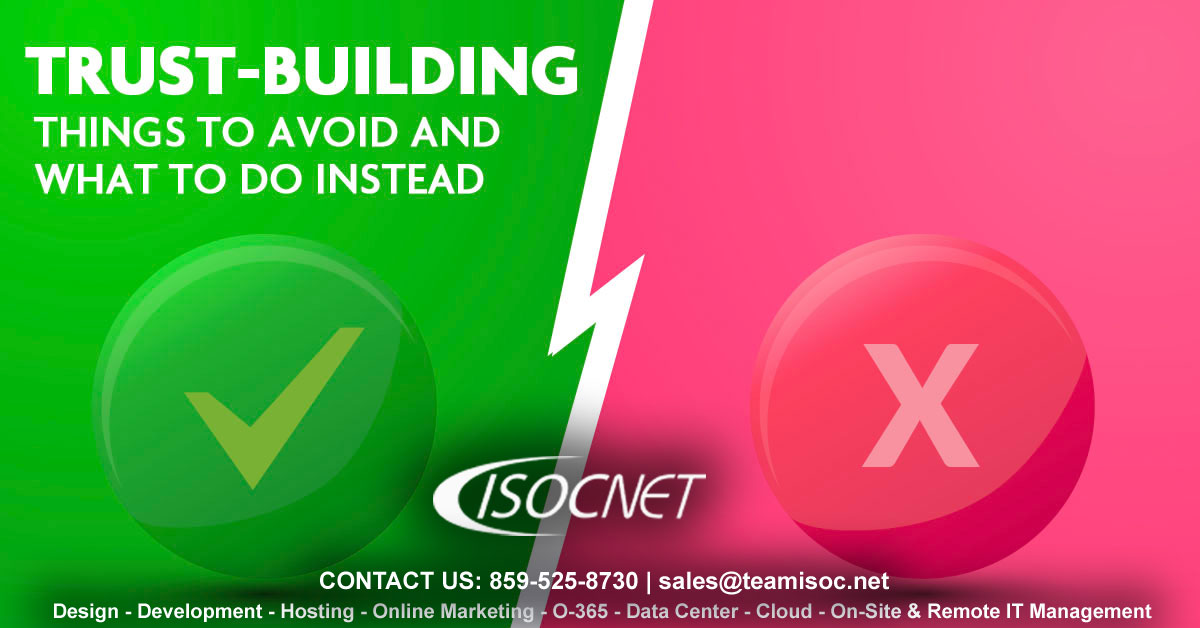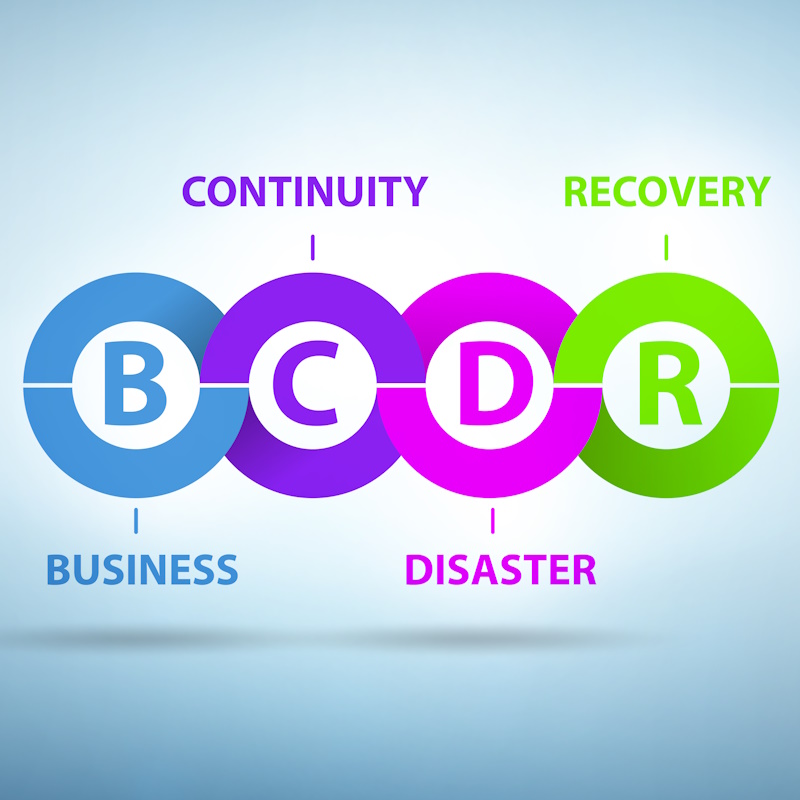Recent Posts
Categories

We are living in an untrusting world. A recent study by the Edelman Trust Barometer found that trust in business, media, government and NGOs has reached an all-time low. It also revealed that trust levels are divided along generational lines, with millennials displaying the lowest levels of trust. Shockingly, this trend was consistent across different countries and cultures. The consequences of this untrusting culture has severe consequences, included decreased investment, creativity and job creation.
As a business owner, you must do what you can to counteract this trend. Building trust throughout your organization can improve job satisfaction, employee and customer retention, innovation and your bottom line.
While trust-building may appear simple, you should be aware of a few things before embarking on a trust-building journey.
Say ‘No’ to These When it Comes to Trust-Building
When building trust with customers and other crucial stakeholders, some businesses unknowingly do things that damage trust. Here are some of the most common mistakes:
Preventing Disagreement
A company at it’s core is a group of people working toward a common goal. Communication is essential for a team’s success and disagreements are a normal part of good communication. If everyone has the same idea and you never challenge or think differently, how can you ever accomplish anything great? So many people think that if you disagree or have any conflict that is must be unhealthy. There is healthy disagreements that can support creativity and innovation.
Instead create a safe environment where healthy, honest and constructive feedback is encouraged to promote innovation, creativity, and a path forward.
Not Keeping Your Word
Doing what you say you are going to do when you say you are going to do it is critical in the work place for building trust. When trust is broken by not keeping your promises to employees, they will no longer feel secure in their roles or put their best effort into their works. Then, they begin looking elsewhere and become disengaged, often not representing the company to well.
Promising employees state of the art technologies and then providing them with shoddy technology is not recommended and can cause employee frustration and disengagement. It is best to under promise and over deliver to avoid the possibility of breaking promises and not keeping your word. This will help build trust among your staff and beyond.
Micromanagement
Rules and regulations exist for a reason – to ensure that employees are productive and safe and your customers get the high-quality service you promise them. However, when these rules become too restrictive and prevent employees from being innovative or taking risks, they can have the opposite effect.
In order to be successful, it’s better to share the end goal and trust workers to use their skillsets, logic and experience. It can be challenging to let employees make mistakes, but they are more likely to learn from them and grow into a better employee.
Lack of Communication
No matter what is going on in the company, good, bad, or indifferent, sharing it with employees builds trust. Many business owners may choose to only share the good, or not share at all. The lack of transparency can create anxiety and uneasiness in employees, which will make then less productive and unhappy. Employees need to be able to trust and have confidence to have a healthy work environment.
Instead of holding onto information, share it with your team. They will appreciate your transparency and are more likely to trust you. They may even be open to offer new ideas and solutions.
Assuming Trust
Today’s workplace has evolved and we have work in new ways, hybrid, remote, rotating schedules and so much more. While this can be great for productivity and creativity, it can also lead to a lack of trust if not managed well.
It takes time to build a trusting relationship. Don’t assume it just exists, be proactive and put in the time and effort needed for turst-building.
Say ‘YES’ to the 7 Elements of Trust
Trust us foundation in any relationship. For a business, employees and customers need to trust that the organization is competent and reliable. The organization needs to trust their employees and stakeholders will act with integrity and empathy.
According to Forrester Research, there are seven levers you can use to build trust:
- Accountability
- Consistency
- Competence
- Dependability
- Empathy
- Integrity
- Transparency
Every organization may put more emphasis on different components, but they are all essential. Deciphering each attribute and putting them into practice require time, effort and skillsets you may not be able to fully devote. Considering collaborating with a Managed IT Service Provider (MSP) like ISOCNET who can help take care of some of the load while you concentrate on your business.



